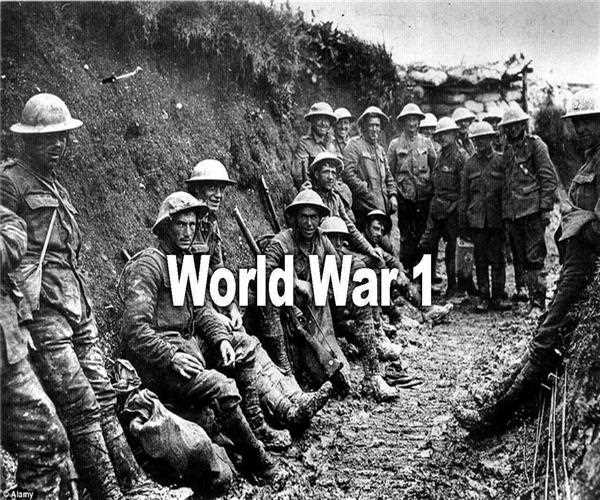Inside long stretches of Wilson's triumph over Hughes, the issue of the Great War turned out to be significantly all the more squeezing. Despite the fact that the Entente powers were presently marginally all the more eager to talk about President Wilson's offer to mediate the question, the Central forces, drove by Germany, were not willing to arrange. Actually, Germany expanded its war exertion in February 1917 when it declared that German U-pontoons would assault each ship in the waters around Europe, paying little mind to reason, nationality, or goal.

Accordingly, Wilson finished discretionary relations with Germany a few days after the declaration. His objective was not to battle, yet rather to educate the German ruler in the sternest way imaginable shy of war that Germany's activities were unsuitable and gambled an encounter. Germany overlooked the risk. Now, numerous in the United States started clamoring for war.
Wilson and people in general were significantly more offended when American knowledge administrations caught a mystery dispatch to Mexico from German Foreign Secretary Arthur Zimmerman, which asked for that Mexico proclaim war on the U.S. on the off chance that the U.S. announced war on Germany. The report, known as the Zimmerman Note, guaranteed Mexico the region of Texas, Arizona, and New Mexico toward the finish of the war if Mexico attacked the U.S. At last, on March 18, 1917, German U-water crafts sank three American shipper ships all of a sudden. The following day, President Wilson chose to enter the war close by the Allied powers.
On April 2, 1917, Wilson asked for that Congress announce war on Germany, expressing that "The world must be made safe for vote based system." Congress proclaimed war on April 6, and Wilson marked the war statement on April 7. Wilson needed to make it obvious, nonetheless, that the U.S. was not battling as an Allied power, but rather only as, what he called, a partner control. The distinction rested in each influence's war points: though the Entente Allies unmistakably needed war crown jewels, for example, land, cash, and the enslavement of the German individuals, Wilson pronounced that the United States was battling just for moral reasons, to be specific to shield vote based system from oppression and advance peace all through the world. After the war's end, Wilson likewise needed to set up a chamber that would guarantee the aggregate security of all of Europe. Wilson initially arranged the military.
Despite the fact that the U.S. In May 1917, Congress sanctioned a Selective Service charge at Wilson's encouraging, with the motivation behind drafting young fellows into the military. Over the span of the war, almost 3,000,000 men were drafted to bring the aggregate size of the military to 4,800,000. Wilson anticipated that people in general would scorn the draft, yet he was wonderfully amazed to discover that numerous bolstered it, particularly in the North. Wilson designated General John J. Pershing as authority of U.S. powers in Europe, and sent him to France to help the Allied troops. Allegedly, Pershing had just two requests from the President, the first being to go to France to battle and the second being to return home. Wilson left the matter of strategies and battling totally under Pershing's purview. By war's end, 1,200,000 American troops were positioned in France; likewise at that point, 112,000 American servicemen had kicked the bucket.
Wilson likewise handled the errand of sorting out and organizing generation of American war materials and foodstuffs. He designated future U.S. President Herbert Hoover to guide a Food Administration to build U.S. horticultural creation and diminish utilization. Hoover demonstrated incredibly capable at the undertaking; by war's end, he had dramatically multiplied farming creation in the nation. Wilson at that point delegated Harry A. Garfield to run the Fuel Administration to expand local fuel creation.
Numerous representatives and Republicans criticized Wilson as a communist for these projects and endeavored to recover control of generation intends to assume control over the American war exertion. Wilson battled back with political savagery.
As had numerous Presidents previously him in the midst of war– including the regarded Abraham Lincoln– Wilson trusted that antiwar assumption would just disturb or conceivably harm the war exertion.The legislature arraigned numerous under these two laws. The most well known protester was Eugene V. Debs, previous Socialist Party possibility for President in 1912, who was given a ten-year jail sentence for contradicting the administration's choice to enter the war.
"Cheers"